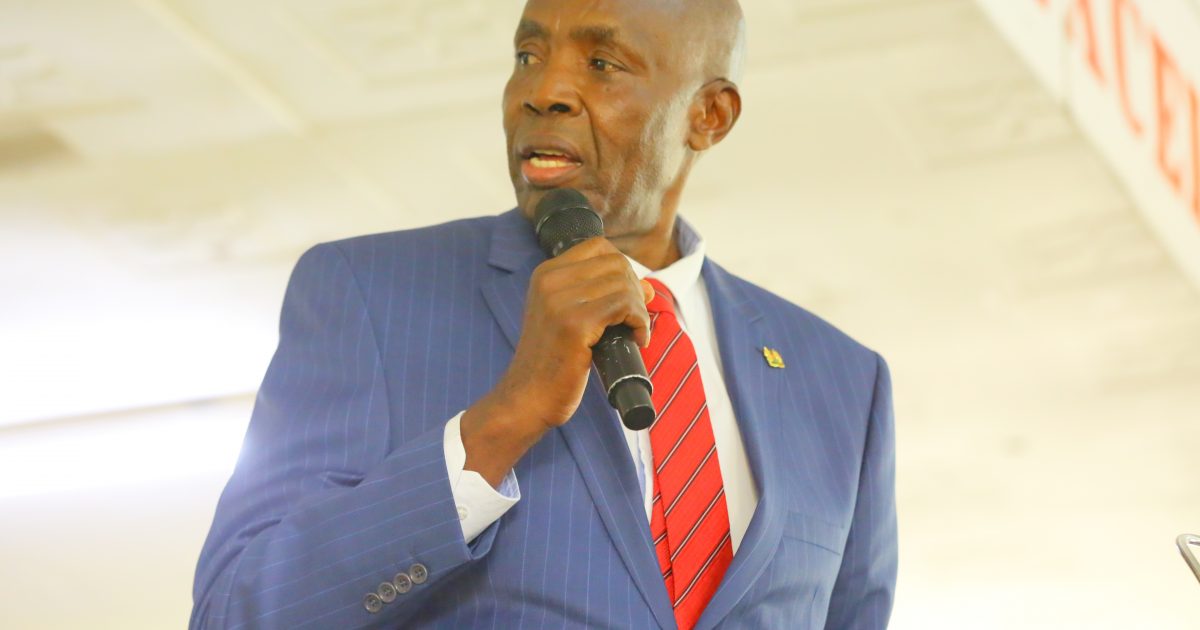Education Cabinet Secretary (CS) Ezekiel Machogu has challenged universities to continuously reinvent themselves in order to provide the intellectual framework and meet the demands of the 21st century.
In a speech read on his behalf by the Higher Education and Research PS, Beatrice Inyangala during Kisii University’s 11th Graduation ceremony, Machogu said the contemporary skills of communication, collaboration, creativity and critical thinking will spur students to produce much-needed innovations.
The CS noted that reinvention can only be realized if universities maintain high academic standards and provide relevant and high-quality programs.
He urged the institutions of higher learning to equip graduates with the credentials and soft skills they need to thrive in the job market, not only as employees, but also as job creators.
Machogu also pointed out the need for universities to strengthen linkages with employers through work-integrated learning opportunities and strategies that foster partnerships with industry, businesses and the community.
Further, he urged Kisii University to continue exploring the depth and breadth of opportunities afforded by digital technology for creating and delivering its programs, so as to enhance the content and expand access to the same in a cost-effective manner.
On matters of sustainable financing of universities, Machogu noted the issue has become a global challenge as governments strive to provide access to quality and relevant training to a growing population.
“Due to the expansion in the university sector witnessed in the last ten years, government support has been inadequate and this has forced universities to operate under a very tight budget,” he said.
The CS appealed to the university management boards to explore industrial and institutional collaborations, public-private partnerships and other resource mobilization strategies as the means of attracting revenue to supplement government capitation.
He pointed out that the government is investing heavily in research by universities and other research institutes, with the expectation that research becomes a revenue stream for them through innovation and commercialization of research outputs.
Machogu encouraged universities to rationalize their programs and build a niche in areas, where they have a comparative advantage to gradually motivate the government to provide performance-based funding to develop emerging centers of excellence, within higher learning institutions.
The CS encouraged the 3,000 graduands to go into the world and fully engage in the search for solutions to the myriad of challenges, facing the country and the world today.
Kisii University’s Chancellor Dr. Bob Ndubi assured the gathering that the university has established a solid foundation and infrastructure since its inception and it will continuously run going forward.
Dr. Ndubi said despite the challenges the institution has faced including capitation, shortage of qualified staff, governance issues, and Covid-19, they have made great strides.
The Chancellor noted the autonomy and academic freedom of public universities is under threat, even as they continue to comply with the Commission for University Education (CUE) guidelines on quality control and government guidelines on university restructuring.
He pointed out some of the initiatives Kisii University has undertaken including ongoing training and recruitment of qualified academic staff and vigorous benchmarking with local and international universities.
“We are very proud of the graduates we have produced so far. The demand for our graduates in Medicine, Law and Business courses has been very encouraging, an assurance for those graduating today that you have a good quality degree and the job market is waiting for you,” he added.
By Mercy Osongo





